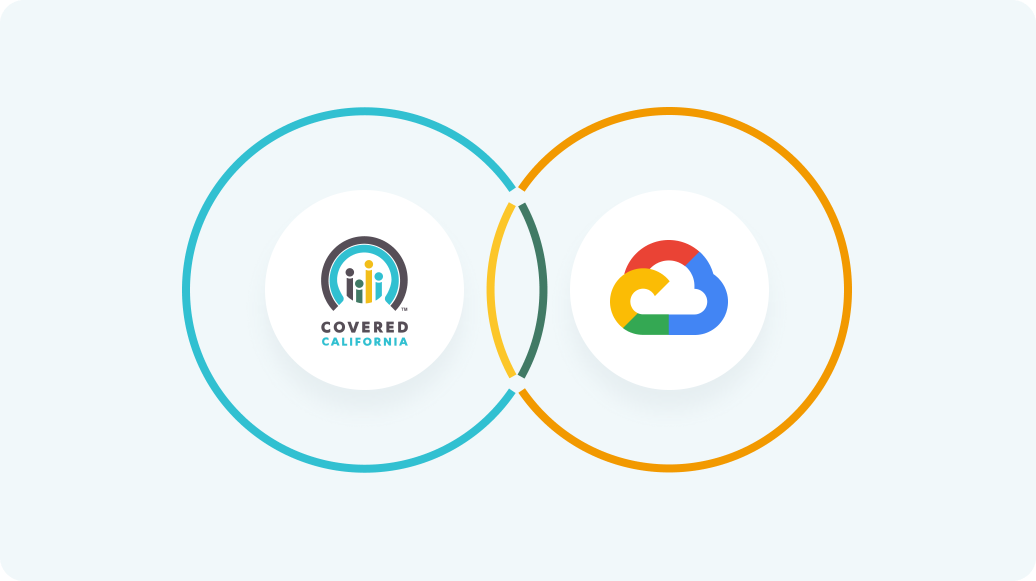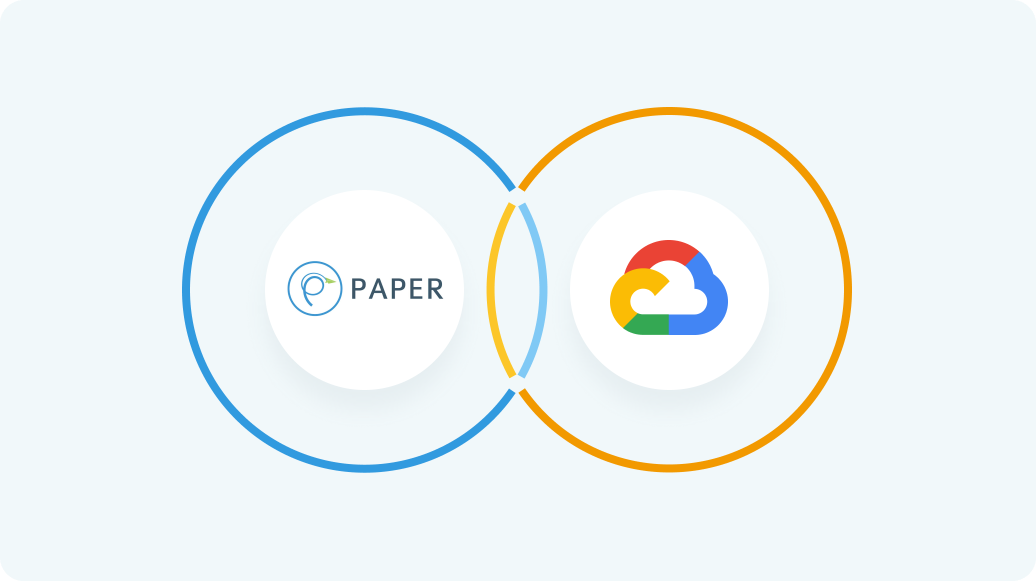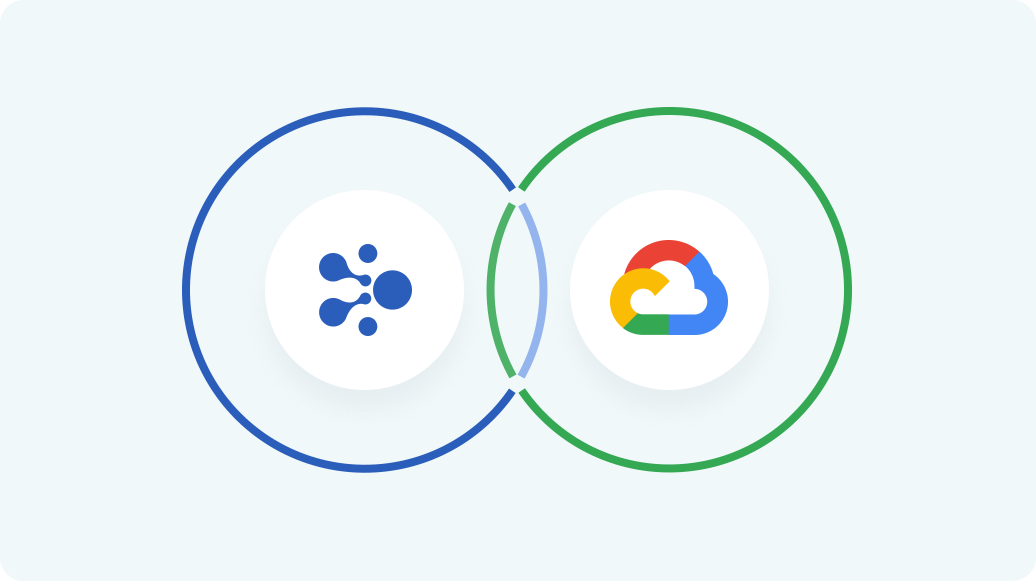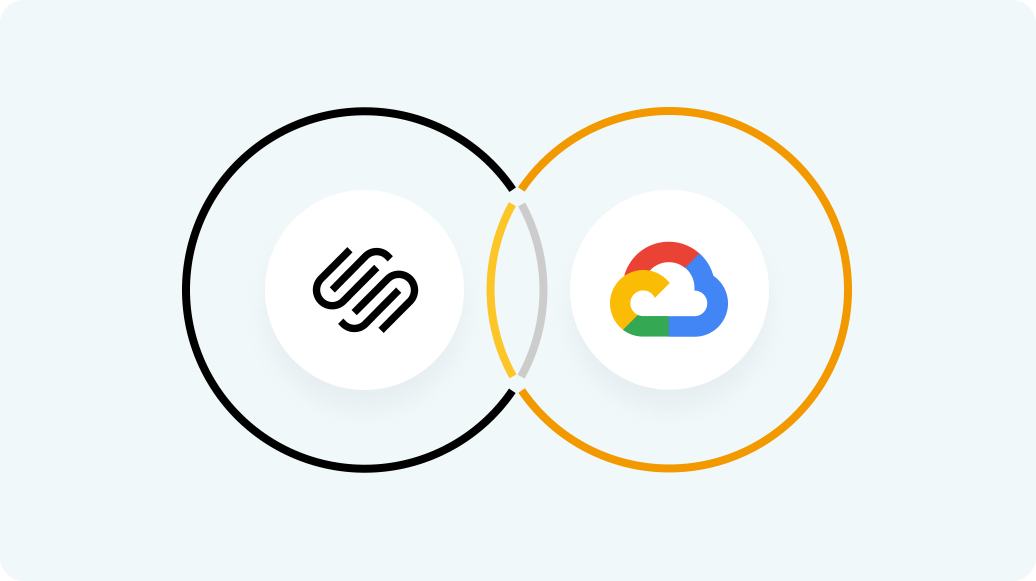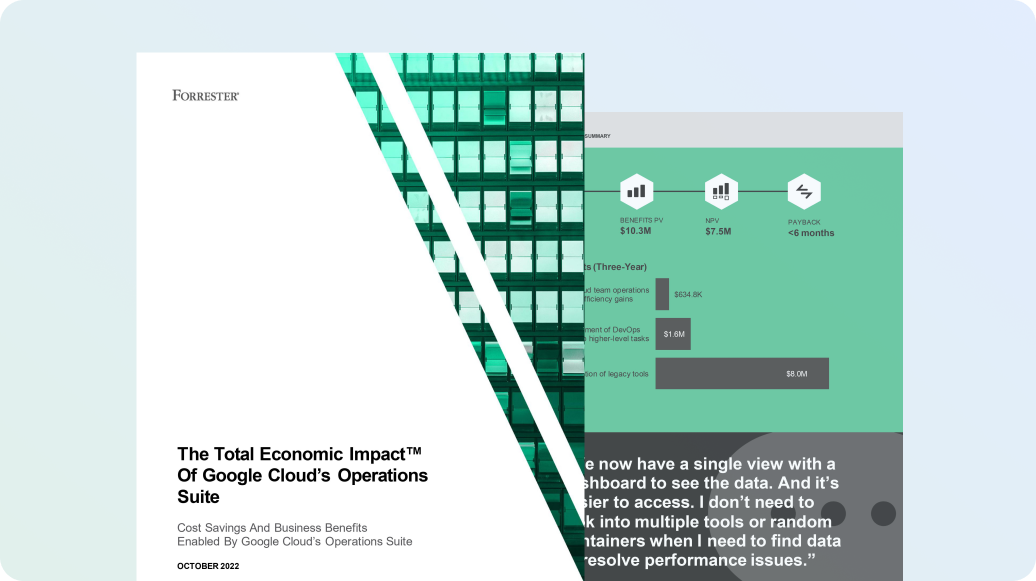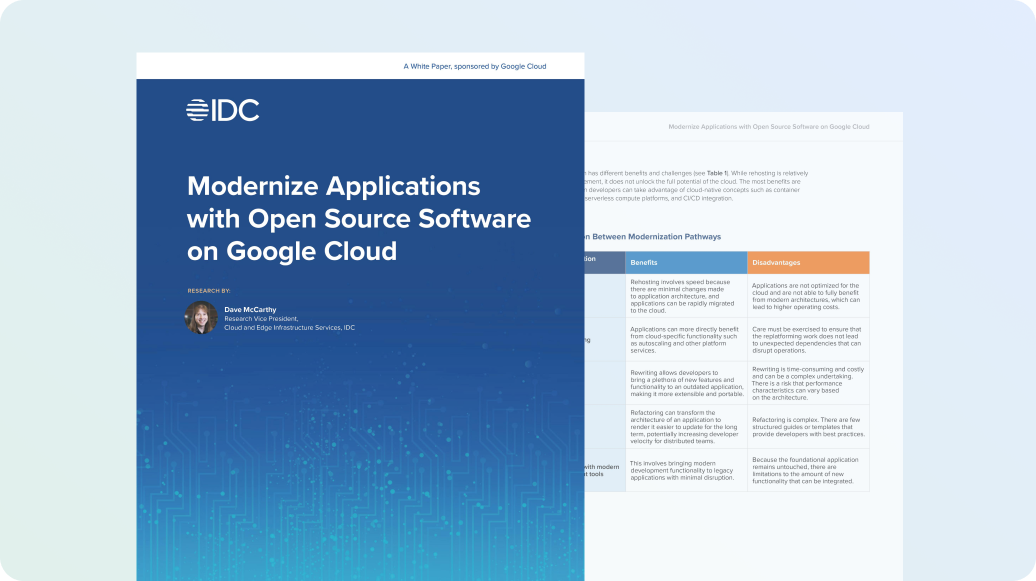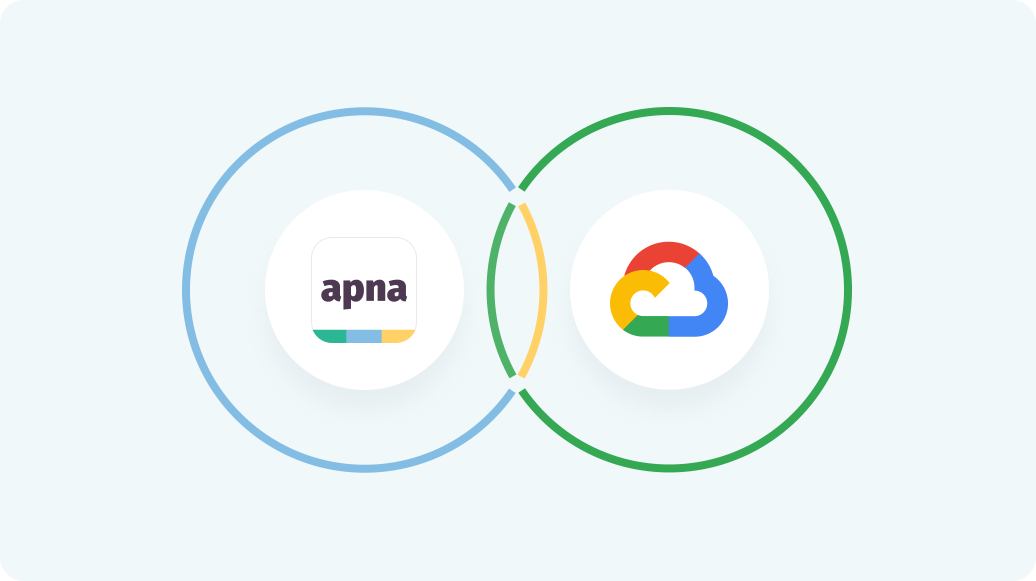Many organizations view migrating database workloads to cloud as the most challenging aspect of their cloud journey. The most simple approach is to migrate database VMs from on-premises data centers to Google Cloud. However, this leaves your operations teams with much of the same overhead they shoulder today. Google Cloud provides managed database services to help you modernize your database systems, and to free your teams to be more productive and responsive to business needs.
Databases and their data tend to be very long-lived. Organizations have amassed a large and diverse set of database systems that they must maintain, numbering thousands or even hundreds of thousands of databases. Each deployment has specific needs in terms of operations, maintenance, security configuration, employee skills, vendor relations, integrations, and hardware requirements. The full demands associated with operating these systems represent an enormous burden to companies, limiting their ability to be innovative.
As organizations migrate to cloud, they have an opportunity to modernize their full database estate. Five main market trends are shaping how customers plan their cloud journeys:
- IT spending is shifting from on-premises to cloud. Gartner predicts that by 2022, 75% of all databases will be deployed or migrated to a cloud platform, with only 5% ever considered for repatriation to on-premises.
- Multi-cloud and hybrid cloud are here to stay. 76% of respondents to a Gartner survey indicate that their organizations use more than one cloud service provider.
- The cloud data management ecosystem is maturing. As a natural outcome of cloud maturity, deployments are evolving from requiring extensive assembly and integration work to being more solutions focused.
- There’s increasing focus on security, compliance, and data sovereignty. Many countries and states have enacted stringent data protection and privacy standards, such as GDPR and CCPA, which is prompting companies to significantly increase their compliance efforts.
- Apps are standardizing on open source. With the rising popularity of open-source engines like PostgreSQL, MySQL and Redis, developers are increasingly building applications on open source databases.
Google and our partners have developed a comprehensive set of managed database solutions to meet the demanding and diverse needs of our customers. We believe that organizations will make use of many of our database services as they progress through their cloud journey. We are focused on making Google’s database services simple, reliable, and secure.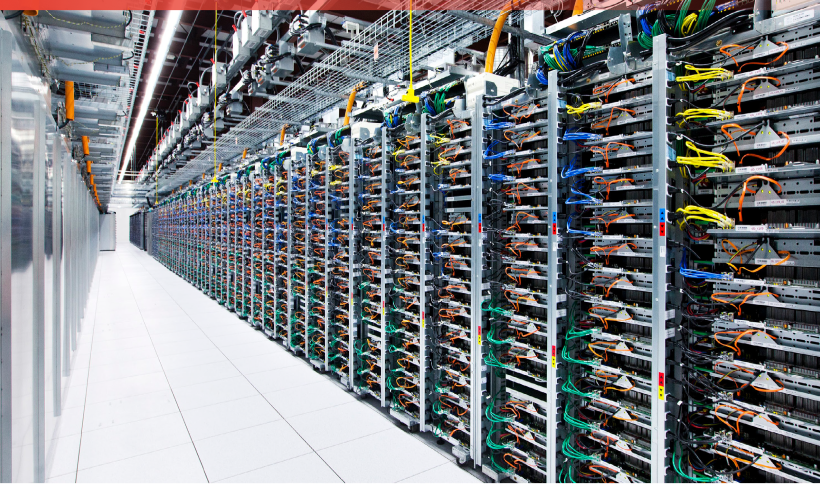
The benefits of Google Cloud’s managed database services
Google Cloud provides databases that are simple to use and operate without cumbersome maintenance tasks and operational overhead. Because Google Cloud keeps the databases highly available and updated, your IT team can focus on delivering innovations while your users enjoy reliable services. With managed database services, you pay for what you use and get the flexibility to provision what you need when you need it. In this paper we discuss managed database services as well as Bare Metal Solution for Oracle, a sole-tenant solution that provides Oracle- certified hardware and software that are fully controlled by the customer. The benefits of Google’s managed database services are extensive and include:
Self-service improves developer velocity
Manual database provisioning is a slow process, making it difficult to scale resources on the fly. With managed database services, developers can easily automate the process to create, modify, clone, and replicate database servers. Powerful and intuitive interfaces make these tasks simple to use and automate.
Google SRE teams have your back 24 x 365
Google wrote the book (or should we say books) on Site Reliability Engineering, and managed database services deliver 24/7 SRE support and multiple layers of protection to ensure a reliable and secure service.
Automated tasks save time while keeping data secure
Maintenance to deliver new feature updates and security is a part of everyday database management—but it’s also time-consuming. Managed database services automate tasks for high availability (HA), backup, disaster recovery, security patching and upgrades. Your deployments can run smoothly and securely.
Organization policies provide safety guardrails
Development always wants to run faster, but security and compliance teams can struggle to keep up. Organization policies for managed database services provide centralized, programmatic control over your organization’s cloud resources without slowing innovation.
More “yes,” less “no”
With more scale, more user demands, and changing business needs, there’s always pressure to deliver more, faster. By moving to Google’s managed database services, teams can say yes to more without increasing headcount.
Flexible pay-as-you-go options
Provision your databases based on your current usage patterns, with the ability to increase or decrease your footprint and costs on-demand.
Advanced security and reliability
The hardware is controlled, built, and hardened by Google. There are no trust assumptions between services. All identities, users, and services are strongly authenticated. Data stored on our infrastructure is automatically encrypted at rest. Communications over the internet to our cloud services are encrypted. The scale of Google’s infrastructure allows it to absorb many Denial of Service attacks, and Google Cloud’s SRE teams detect threats and respond to incidents 24 x 365.
The world’s most advanced global network
Google uniquely provides global connectivity with the world’s largest software-defined network based on its own fiber network. This enables simple and robust cross-regional operations and redundancy, without the need to set up dedicated connections between Google Cloud regions. With this network, our database services can create resources in different regions, simplifying how applications provide great experiences to customers, no matter where they are on the globe.
Optimal integrations with popular tools and Google Cloud services
Databases need ecosystems. Google provides extensive support for dozens of Google Cloud services, the most popular ORMs, tools, libraries, and frameworks. This includes robust integrations with Google Kubernetes Engine (GKE), direct queries from BigQuery, and multiple data integration services, such as Cloud Dataflow, Data Fusion, Pub/Sub, and more.
Maximum compatibility for your workloads
For many workloads, your priority is compatibility with existing database products. Many applications likely run well on the databases you are using today. In addition, most applications have a database dependency, including a specific product, version, and configuration. Google Cloud provides managed services for databases that maximize compatibility, providing you the least disruptive way to migrate to cloud.
Google Cloud provides choice without compromise. You can build with Google Cloud services, or any of our partner services, and benefit from integrated billing and equal credit towards your spend commitments. Google Cloud integrations make data access and movement simple, secure, and reliable.
Here’s a look at the database services that Google Cloud offers that maximize compatibility for your workloads:
| Database platform | Google Cloud database service | Versions supported | Regions Available |
| Oracle database | Bare Metal Solution for Oracle | Oracle Database 11.2.0.4 or higher | – asia-northeast1 – asia-southeast1 – australia-southeast1 – Europe-west2 – europe-west3 – europe-west4 – northamerica-northeast1 – southamerica-east1 – us-east4 – us-west2 |
| Microsoft SQL Server | Cloud SQL for SQL Server | – SQL Server 2017 Standard – SQL Server 2017 Enterprise – SQL Server 2017 Express – SQL Server 2017 Web – SQL Server 2019 Standard – SQL Server 2019 Enterprise – SQL Server 2019 Express – SQL Server 2019 Web | All regions and zones |
| MySQL | Cloud SQL for MySQL | – MySQL 5.6 – MySQL 5.7 – MySQL 8.0 | All regions and zones |
| PostgreSQL | Cloud SQL for PostgreSQL | – PostgreSQL 9.6 – PostgreSQL 10 – PostgreSQL 11 – PostgreSQL 12 – PostgreSQL 13 | All regions and zones |
| MongoDB | MongoDB Atlas | – MongoDB 3.6 – MongoDB 4.0 – MongoDB 4.2 – MongoDB 4.4 | All regions and zones |
| Memcached | Memorystore | Memcached 1.5.16 | All regions and zones |
| Redis | Memorystore | Redis 3.2 Redis 4.0 Redis 5.0 | All regions and zones |
| Redis | Redis Enterprise Cloud | Redis 6.0 and higher | All regions and zones, except us-west3 and us-west4 |
| Cassandra | Datastax Astra | Apache Cassandra 3.11 | – us-east-1 – eu-west-1 – asia-south-1 |
| Apache HBase | Cloud Bigtable | Apache HBase 1.0 and later | All regions and zones |
| Neo4j | Neo4j Aura | Latest major version of Neo4j | All regions and zones |
| InfluxDB | InfluxDB Cloud | All versions of InfluxDB | – us-central1 – europe-west1 |
For Oracle workloads: Bare Metal Solution for Oracle
Bare Metal Solution for Oracle provides a path to modernize your application infrastructure landscape while maintaining your existing investments and architecture. With Bare Metal Solution, you can bring your specialized workloads to Google Cloud, allowing you access and integration with Google Cloud services with minimal latency. Customers have access to hosted Bare Metal where they can access, install, and manage an Oracle environment in a manner consistent with their on-prem environment.
With Bare Metal Solution for Oracle, Google manages the Oracle-certified hardware, data center, and network, including a dedicated, low-latency and highly resilient interconnect to all native Google Cloud services. The customer retains full control of the operating system, the Oracle database, and any other software. This approach provides maximum flexibility for all types of Oracle deployments, including complementary products like DataGuard, Oracle Recovery Manager (RMAN), Oracle Real Application Clusters (RAC), and more.
Key benefits of Bare Metal Solution for Oracle
Flexible instance types and regional availability
- Certified and optimized hardware for Oracle database
- Servers from eight cores up to 112 cores and 3TB RAM
- Sole tenant, with full customer-managed root access to each instance
- NetApp FC-SAN storage with optimized NVMe
- Options for Oracle, RedHat, and SUSE Linux
- Extensive regional availability
- Low latency network between your specialized workloads and your GCP cloud environment, typical <2 ms
Security and compliance
- Encryption at rest from NetApp
- Physical and network security handled by Google
- HIPAA and PCI DSS
- ISO/IEC 27001:2013
- SOC 1 Type 2, SOC 2 Type 2, and SOC 3
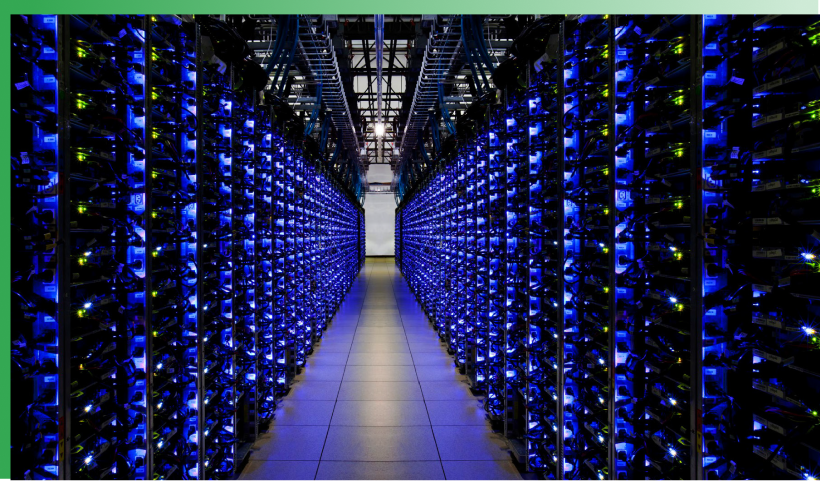
Operations and management
- Reduce Oracle licensing costs with smaller servers and/or Oracle virtualization
- Control plane with APIs for server reset and snapshot management
- Access to server serial console
- Maintenance windows to defer updates
- Exit your data center and work with a single vendor
Developer productivity
- Run Oracle databases
- Run Oracle Real Application Clusters (RAC), GoldenGate, Data Guard
- Automate routine database administration tasks by leveraging El Carro
- Integrate with BigQuery, Actifio, and other Google Cloud products with ultra low latency
For SQL Server workloads: Cloud SQL for SQL Server
Cloud SQL for SQL Server automatically ensures your databases are reliable, secure, and scalable so that your business continues to run without disruption. Flexible instance shapes allow you to optimize the balance of compute, storage, and memory for each deployment.
The underlying Google Cloud infrastructure is highly optimized for predictable, high-performance operations with edition-agnostic capabilities such as storage-based HA. Developers can focus on shipping features in your applications with seamless integrations to GKE and dozens of other Google Cloud services.
Robust security and compliance controls give your teams peace of mind. Automated backups, replication, encryption patches, capacity increases, and 99.95% availability anywhere in the world allow your operations teams to scale more efficiently.
Key benefits of Cloud SQL for SQL Server
Flexible instance shapes and regional availability
- Includes web, express, standard, and enterprise editions for SQL Server 2017 and 2019
- Pay for what you use with per-minute billing, free ingress, and per-GB pricing for storage and network use
- Uniform availability across all Google Cloud regions and zones
- Flexible instance shapes, scale compute, storage, memory independently to better fit your workload needs and manage licensing costs
- Scale up to 96 cores, 624GB RAM, 64TB storage
- 99.95% SLA
- Global VPC
Security and compliance
- Active Directory integration
- Integrated support for Customer-managed encryption keys (CMEK)
- Integrated Cloud Key Management
- Integrated logging with Cloud Audit Logging including SQL Agent
- Automatic data encryption at rest and in transit
- Private connectivity with Virtual Private Cloud and user-controlled network access with firewall protection
- Compliant with SSAE 16, ISO 27001, PCI DSS, and HIPAA
Operations and management
- Integrated managed backups configurable up to 1 year of retention
- Automatic replication (read, cross-region read, external server)
- Multi-region replication with automatic failover within region
- Configurable maintenance windows for automatic patching
- Up to 90-day maintenance deny periods
- Rapid failover and maintenance downtime less than 120 seconds
- Low-latency query response (1s to 10s of milliseconds)
- Integration with Cloud Monitoring and Logging
Developer productivity
- Full compatibility for web, express, standard, and enterprise editions of SQL Server 2017 and 2019
- Seamless connections from GKE, Compute Engine, and App Engine
- Integrated CDC with serverless Datastream
- Integrated use of Cloud Data Functions
Data integrations
- Integrated data discovery with Cloud Data Catalog
- CDC-based integration with Cloud Data Fusion
For MySQL workloads: Cloud SQL for MySQL
Cloud SQL for MySQL automatically ensures your databases are reliable, secure, and scalable so that your business continues to run without disruption. Cloud SQL for MySQL is Google Cloud’s managed service that offers full MySQL compatibility with your existing MySQL workloads.
Flexible instance shapes allow you to optimize the balance of compute, storage, and memory for each deployment. The underlying Google Cloud infrastructure is highly optimized for predictable, high-performance operations such as storage-based HA. Developers can focus on shipping features in your applications with seamless integrations to Google Kubernetes Engine and dozens of other Google Cloud services.
Robust security and compliance controls give your teams peace of mind. Automated backups, replication, encryption patches, capacity increases, and 99.95% availability anywhere in the world allow your operations teams to scale more efficiently.
Key benefits of Cloud SQL for MySQL
Flexible instance shapes and regional availability
- Pay for what you use with per-second billing, free ingress, and per-GB pricing for storage and network use
- Uniform availability across all Google Cloud regions and zones
- Flexible instance shapes, scale compute, storage, memory independently to better fit your workload needs and manage licensing costs
- Scale up to 96 cores, 624GB RAM, 30TB storage
- 99.95% SLA
- Global VPC
Security and compliance
- Integrated support for CMEK
- Integrated Cloud Key Management
- Integrated logging with Cloud Audit Logging including SQL Agent
- Automatic data encryption at rest and in transit
- Private connectivity with Virtual Private Cloud and user-controlled network access with firewall protection
- Compliant with SSAE 16, ISO 27001, PCI DSS, and HIPAA
Operations and management
- Integrated managed backups configurable up to one year of retention and point-in-time recovery
- Automatic replication (read, cross-region read, external server)
- Multi-region replication with automatic failover within region
- Configurable maintenance windows for automatic patching
- Up to 90-day maintenance deny periods
- Rapid failover and maintenance downtime less than 90 seconds
- Low-latency query response (1s to 10s of milliseconds)
- Integration with Cloud Monitoring and Logging
Developer productivity
- Full compatibility for MySQL 5.6, 5.7, and 8.0
- Automatic minor version patching for latest MySQL features and performance improvements
- Support nearly 200 configurable MySQL flags to optimize database tuning
- Seamless connections from Google Kubernetes Engine (GKE), Compute Engine, and App Engine
- Integrated CDC with serverless Datastream
- Integrated use of Cloud Data Functions
- Reliable, secure online migrations using serverless Database Migration Service (DMS)
Data integrations
- Integrated data discovery with Cloud Data Catalog
- Integrated federated queries with BigQuery
- CDC-based integration with Cloud Data Fusion
For PostgreSQL workloads: Cloud SQL for PostgreSQL
Cloud SQL for PostgreSQL automatically ensures your databases are reliable, secure, and scalable so that your business continues to run without disruption. Flexible instance shapes allow you to optimize the balance of compute, storage, and memory for each deployment. Google Cloud is committed to compatibility with PostgreSQL, including extensions created and maintained by the PostgreSQL community.
The underlying Google Cloud infrastructure is highly optimized for predictable, high-performance operations such as storage-based HA. Developers can focus on shipping features in your applications with seamless integrations to Google Kubernetes Engine and dozens of other Google Cloud services.
Robust security and compliance controls give your teams peace of mind. Automated backups, replication, encryption patches, capacity increases, and 99.95% availability anywhere in the world allow your operations teams to scale more efficiently.
Key benefits of Cloud SQL for PostgreSQL
Flexible instance shapes and regional availability
- Pay for what you use with per-second billing, free ingress, and per-GB pricing for storage and network use
- Uniform availability across all Google Cloud regions and zones
- Flexible instance shapes, scale compute, storage, memory independently to better fit your workload needs and manage licensing costs
- Scale up to 96 cores, 624GB RAM, 30TB storage
- 99.95% SLA
- Global VPC
Security and compliance
- Integrated support for CMEK
- Integrated Cloud Key Management
- Integrated logging with Cloud Audit Logging including SQL Agent
- Integrated Database Activity Monitoring
- Automatic data encryption at rest and in transit
- Private connectivity with Virtual Private Cloud and user-controlled network access with firewall protection
- Compliant with SSAE 16, ISO 27001, PCI DSS, and HIPAA
Operations and management
- Integrated managed backups configurable up to 1 year of retention and point-in-time recovery
- Integrated database observability with Cloud SQL Insights
- Automatic replication (read, cross-region read, external server)
- Multi-region replication with automatic failover within region
- Configurable maintenance windows for automatic patching
- Up to 90-day maintenance deny periods
- Rapid failover and maintenance downtime less than 90 seconds
- Low-latency query response (1s to 10s of milliseconds)
- Integration with Cloud Monitoring & Logging
Developer productivity
- Full compatibility for PostgreSQL 9.6, 10, 11, 12, 13
- Seamless connections from GKE, Compute Engine, and App Engine
- Integrated database observability with serverless Cloud SQL Insights
- Support for logical replication and decoding
- Integrated CDC with serverless Datastream
- Integrated use of Cloud Data Functions
- Reliable, secure online migrations using serverless Database Migration Service (DMS)
Data integrations
- Integrated data discovery with Cloud Data Catalog
- Integrated federated queries with BigQuery
- CDC-based integration with Cloud Data Fusion
For Redis and Memcached workloads: Memorystore
Memorystore provides a scalable, secure, and highly available in-memory service for open source Redis and Memcached. Memorystore automates complex tasks like enabling high availability, failover, patching, and monitoring so you can spend more time innovating and delighting your customers.
Memorystore for Redis instances are replicated across two zones and provide a 99.9% availability SLA. Instances are constantly monitored and failover automatically keeping the applications running with minimum disruption.
Memorystore allows you to scale as needed. You can start with the lowest tier and smallest size, and then grow your instance with minimal impact. Memorystore for Memcached can support clusters as large as 5 TB supporting millions of QPS at very low latency. Memorystore is protected from the internet using VPC networks and private IP and comes with IAM integration—all designed to protect your data.
Key benefits of Memorystore
Regional availability
- Available across all regions and zones
- Up to 99.9% availability
- Fast failover during planned and unplanned downtime
Security and compliance
- Private connectivity with Virtual Private Cloud (VPC) and support for Shared VPC
- Redis AUTH support for instance-level protection
- Encryption for data in transit including replication traffic
- IAM Integration for admin operations
- Integrated with Cloud Audit Logging
- HIPAA, ISO/IEC 27001, PCI DSS, SOC3 compliant
Operations and management
- Built-in high availability with health monitoring and fast automatic failover
- Integrated with Cloud Monitoring and Logging
- Integrated RDB backups to Cloud Storage buckets
- Integrated Cloud Monitoring dashboards
Developer productivity
- Full compatibility for Redis 5.0 and 6.0 (public preview)
- Single Redis endpoint, automatically redirects clients on failover
- Client auto discovery service for Memcached node discovery
- Connect seamlessly from GKE, Compute Engine, and App Engine and on-premises
For Redis: Redis Enterprise Cloud
Google Cloud partners with Redis Labs to offer an in-memory open source database, supporting a variety of high- performance operational, analytics or hybrid use cases. Redis Enterprise Cloud is available via the Google Cloud Marketplace, which allows for ease of procurement, while giving customers the added benefit of retiring their Google Cloud spend commit through Redis Enterprise Cloud.
Key benefits of Redis Enterprise Cloud
Regional availability
- All regions and zones, except us-west3 and us-west4
- Up to 99.999% availability
- Up to 25TB + in RAM, 100TB+ in Flash
- Up to 150 GB/s of throughput
Security and compliance
- Multi-layer security for role-based access-control, authentication, authorization
- Encryption for data in transit and data at rest
- Safeguards your deployment from Redis buffers overflow
- Implements CPU throttling
- Blocks Lua scripts from accessing the host
- SOC2 and HIPAA eligible

Operations and management
- Support for multi cloud and hybrid cloud deployments
- Redis Enterprise Modules
- Support for Active-Active deployments
Developer productivity
- Full compatibility for Redis 6.0
- Support for multiple data types and and models, including RediSearch, RedisJSON, RedisGraph, RedisTimeSeries, RedisBloom and RedisAI
- Integration with Google Kubernetes Engine
For Apache HBase workloads: Cloud Bigtable
Cloud Bigtable is a fully managed NoSQL database service that offers unlimited scalability, high availability, and consistent single-digit millisecond latencies for reads and writes. Bigtable supports the Apache HBase API to help you migrate your HBase workloads seamlessly, without rewriting your applications. Bigtable powers some of the world’s most demanding analytical and operational workloads. It is ideal for cost-effectively storing very large volumes of semi-structured or irregularly structured data when high concurrency and low latency are required. Bigtable is built with proven infrastructure that powers Google products used by billions, such as Google Search, YouTube, and Google Maps.
Key benefits of Bigtable
Availability
- Uniform availability across all Google Cloud regions and zones
- Pay-as-you-go pricing or enterprise discounts with an annual commitment
- 99.9% for one cluster
- 99.99% with replication across two clusters with multi-cluster routing
- 99.999% with replication across three or more clusters with multi-cluster routing
- Consistent sub-10 ms 99th percentile read and write latency
- 10MB/s write throughput per node
- Up to 220MB/s scan throughput
Security and compliance
- Automatic data encryption at rest and in transit
- Integrated Cloud Key Management
- Support for Customer Managed Encryption Keys (CMEK)
- Control plane and Data Access Audit Logging
- Private connectivity with Virtual Private Cloud and user-controlled network access with firewall protection
- Compliant with FedRAMP High, HIPAA, CSA STAR, PCI DSS, SOC 1, SOC 2, SOC 3, DISA, ISO/IEC 27001, ISO/ IEC 27017, ISO/IEC 27018, ISO/IEC 27701, IRAP, and more
Operations and management
- Start with a single node per cluster, and seamlessly scale to hundreds of nodes
- Integrated managed backups
- Fully managed replication (across zones, cross-region)
- Multi-region replication with automatic failover
- Workload Isolation—for example, batch writes, serving path reads
Developer productivity
- Compatible with HBase API
- Seamless migrations from self-managed HBase without application rewrites
- Key Visualizer helps you analyze your Cloud Bigtable usage patterns at scale
- Seamless connections from GKE, Compute Engine, and App Engine
- Application profile settings that tell your Cloud Bigtable instance how to handle incoming requests from an application
- Local, in-memory emulator that you can use to test your application
- Integrates easily with big data tools like BigQuery, Hadoop, Dataflow, Dataproc, and the Apache Beam ecosystem.
For MongoDB workloads: MongoDB Atlas
MongoDB Atlas on Google Cloud is a fully managed global cloud database that gives you the versatility you need to build sophisticated applications that can adapt to changing customer demands and market trends. It is available in all Google Cloud regions and delivers advanced data privacy and data distribution capabilities. Get started in minutes and leverage intelligent automation to maintain performance at scale as your applications evolve over time.
Key benefits of MongoDB Atlas
Flexible instances and regional availability
- General and low CPU/memory-optimized instance shapes
- Available in 24 regions with optional cross-region distribution of read nodes to reduce latency
Security and compliance
- Automatic data encryption at rest and in transit
- Encryption for data in use with client-side field level encryption
- Integrated Cloud Key Management
- Private connectivity with VPC Peering
- Sharded global cluster deployments to address data sovereignty requirements
- Compliant with SOC 2 Type II, PCI DSS, HIPAA, ISO 27001
Operations and management
- On-demand recommendations of index and data modeling best practices
- Single-click vertical and horizontal scaling
- Auto-scale for storage and compute
- Isolated analytics nodes to reduce impact of longer-running analytical queries
- Sharded global cluster deployments to reduce read/write latency
- Integrated fine-grained monitoring, real-time performance panel, and query profiler
- Automatic data replication across availability zones with automated failover
- Configurable cross-region failover
- 99.995% uptime SLA
- Automated backups with point-in-time data recovery
- Automated patches and security updates with configurable maintenance deny periods
- Pause cluster functionality
- Reduce migration downtime with live migration service for self-managed MongoDB deployments
Developer productivity
- Full compatibility with MongoDB 4.0, 4.2, 4.4
- Migration compatibility with MongoDB versions 2.6 and later
- Built-in data explorer with visual aggregation pipeline builder
- Integrated full-text search capabilities using consistent query API
- Native data visualization and dashboarding with easy embedding support
- Database triggers for building event-driven applications
- Bi-directional edge to cloud data synchronization with Realm mobile database
Google Cloud integrations
- Available in the Google Cloud Console and Marketplace
- Available as a pay-as-you-go offering on Google Cloud Marketplace
- Integrated billing and support
- Product integrations with Pub/Sub, BigQuery, Dataproc, Dataflow, Cloud Run, App Engine, Cloud Functions, GKE, and more
